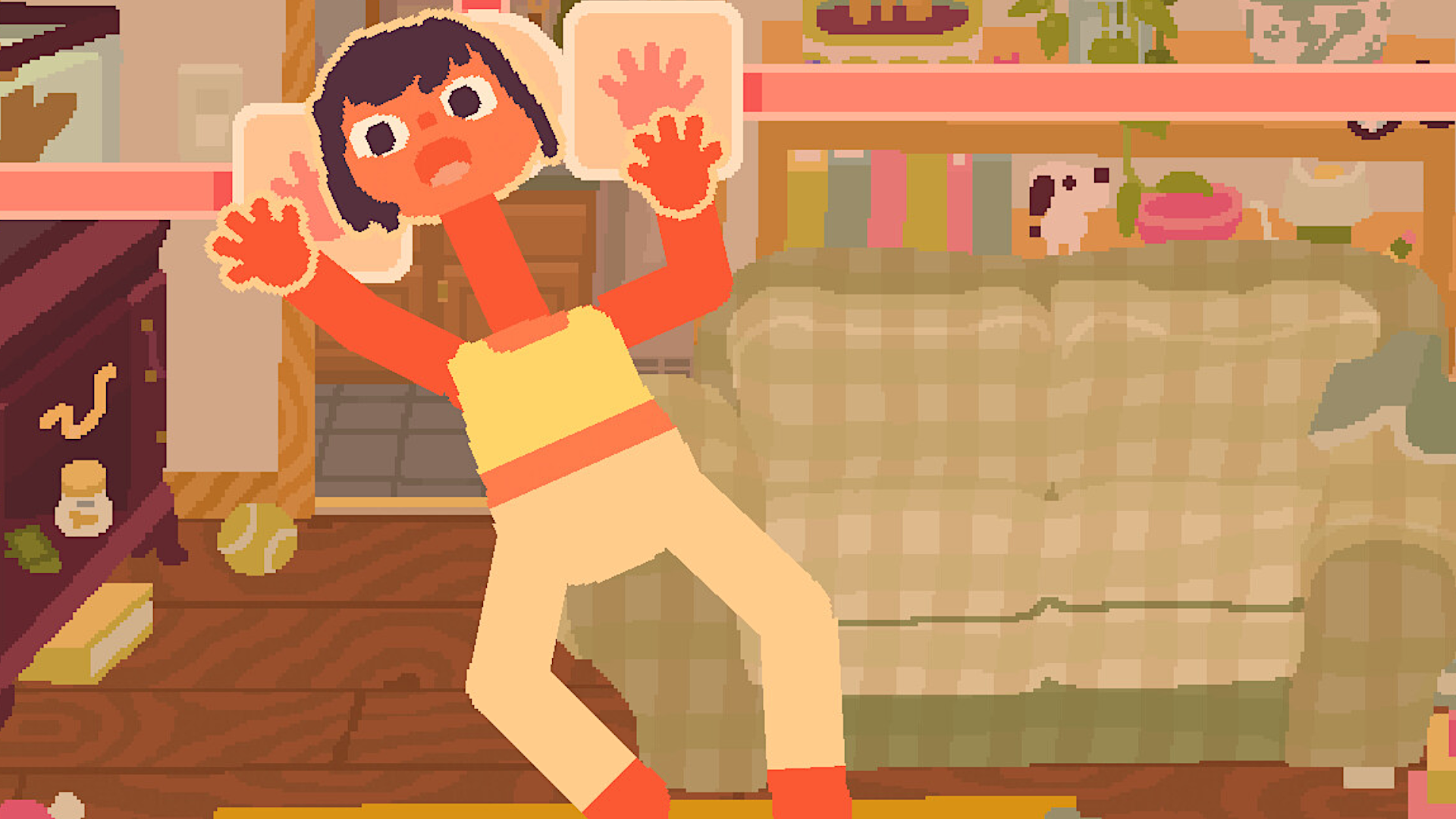Itch.io deindexes NSFW games after becoming the latest target of skittish credit card companies and anti-porn group Collective Shout
An absolute mess.

Keep up to date with the most important stories and the best deals, as picked by the PC Gamer team.
You are now subscribed
Your newsletter sign-up was successful
Want to add more newsletters?
Update, July 29: Leaf Corcoran, founder and owner of Itch.io, has clarified that Consume Me was not removed as part of the deindexing, "since its 2018 publishing because it didn't meet minimum indexing requirements." Corcoran has also stated he intends to make indexing requirements easier to observe. Many games have still been deindexed. Original story follows.
Itch.io, a platform that hosts and sells videogames (particularly popular in the indie dev industry) is the latest videogame distributor to fall to a recent sweep of puritan policies by credit card companies, designed to limit the sale of NSFW content. For those not in the know, credit card processors such as Visa and Mastercard have pressured Steam into removing NSFW content from its platform.
In the interest of fairness, there are some logical reasons for this—adult content is often used for scams and chargebacks, which costs banks money, and some adult websites have been caught displaying content featuring minors, such as PornHub: Motivating processors to drop the platforms entirely.
The issue, however, comes from any company's complete disinterest in the often difficult (and expensive) work of applying nuance—it's cheaper and less time-consuming to go scorched earth, consequences be damned, as was the case with Valve and, now, Itch.io.
"We have 'deindexed' all adult NSFW content from our browse and search pages," announces the site on a blog page. "Recently, we came under scrutiny from our payment processors regarding the nature of some content hosted on itch.io."
The site then goes on to discuss the No Mercy situation—an adult game with some disturbing themes that drew the ire of the UK government and, notably, Australian activist group Collective Shout.
Collective Shout, an anti-pornography group, used No Mercy as a lever by which to pressure payment processing groups such as Visa and Mastercard to "cut ties" with both Steam and Itch.io. The campaign formed just over 1,000 individuals, whose motives target "hundreds of r*pe, incest, and child-abuse games" on both platforms, though the resultant policies will be far further reaching.
"Our ability to process payments is critical for every creator on our platform," the site continues. "To ensure that we can continue to operate and provide a marketplace for all developers, we must prioritize our relationship with our payment partners and take immediate steps towards compliance."
Keep up to date with the most important stories and the best deals, as picked by the PC Gamer team.
Delisting NSFW content from browse and search pages is just the start, though—to further comply with payment processor's demands, Itch.io will have to "introduce new compliance measures. For NSFW pages, this will include a new step where creators must confirm that their content is allowable under the policies of the respective payment processors linked to their account."
Some games may be actively removed from the platform under these rules. "Part of this review will see some pages being permanently removed from itch.io." These policy changes have already reportedly impacted games such as Consume Me, which won the Seumas McNally Grand Prize and the Nuovo Award at 2025's Independent Game Festival.
Here we have a developer's deeply personal tale about the horrors of growing up as a teenage girl, a seemingly intimate and honest dissection of eating disorders, familial pressure, and a sexist society hellbent on telling young girls how to dress and feel.
And now, because of a group that swears up-and-down that it's protecting women, Consume Me has been delisted on one of its primary distribution platforms. It's satire so bleak that it's on the nose.

The issue of games depicting adult, troubling, or upsetting themes is multi-faceted—I'm not going to defend No Mercy, it's a game I absolutely found repugnant—but scorched earth policies that see all adult content stripped from platforms often hurt more than they help, especially when it comes to marginalised communities.
Furthermore, the playbook of stating you're taking action to protect women and children is also not unfamiliar to me, especially as a queer person who knows their history and, unfortunately, the present day.
It's used as a smokescreen for bigots of all stripes. Whether it's the UK's Section 28, in the late '80s, which came after gay men for "gross indecency", or the 2021's version of far-right extremists banging the drum of "grooming", I am always incredibly wary whenever such broad claims are made.
History is, indeed, rhyming: The work of Robert Yang was also impacted. Yang is a developer that's made several notable games covering queer history and culture—such as The Tearoom, a game that explores gay cruising culture in the 1960s. The game that specifically explores time in which Ohio police filmed men through a two-way mirror in a public bathroom and charged them for sodomy using that evidence. Also caught in the crossfire.
Maybe Collective Shout doesn't care about the history of systemic oppression to my community, whatever: But if it truly believes that the representation of women in games media is troubling and problematic, the deplatforming of a game like Consume Me, which does represent the struggle of growing up as a young girl with honesty, nuance, and care, should horrify them. I seriously doubt it will.
And that's saying nothing of the corporate dystopian idea that credit card processors, who nobody voted for, can have such monopolies over Itch.io and Steam. Monopolies that let them decide what art is and isn't fit for public consumption, making them powerful enough to skirt the whole legal system. Call me old-fashioned, but in a functioning democracy, I don't think a CEO should get to decide what I can and can't buy.
Best laptop games: Low-spec life
Best Steam Deck games: Handheld must-haves
Best browser games: No install needed
Best indie games: Independent excellence
Best co-op games: Better together

Harvey's history with games started when he first begged his parents for a World of Warcraft subscription aged 12, though he's since been cursed with Final Fantasy 14-brain and a huge crush on G'raha Tia. He made his start as a freelancer, writing for websites like Techradar, The Escapist, Dicebreaker, The Gamer, Into the Spine—and of course, PC Gamer. He'll sink his teeth into anything that looks interesting, though he has a soft spot for RPGs, soulslikes, roguelikes, deckbuilders, MMOs, and weird indie titles. He also plays a shelf load of TTRPGs in his offline time. Don't ask him what his favourite system is, he has too many.
You must confirm your public display name before commenting
Please logout and then login again, you will then be prompted to enter your display name.


